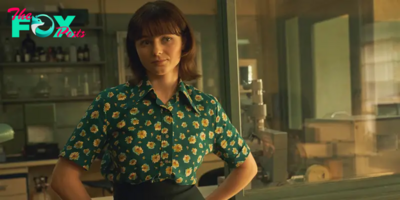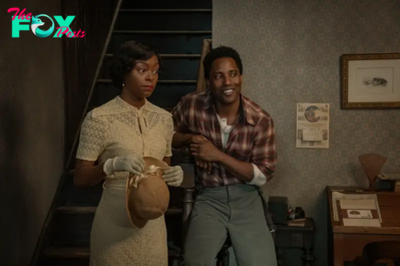Entertainment
The 5 Best New TV Shows of June 2024
Summertime, and the viewing is easy. Which is a relief, considering the heat dome conditions that have made outdoor recreation, in much of the eastern half of the U.S., feel like playing in a furnace. Among June’s best new TV shows are documentary series about disco and a Renaissance faire. (Both are pretty substantive but feel relatively light for a genre whose favorite topic is serial killers.) Julio Torres returns with another comedy that finds ethereal humor in the precarity of an artist’s life. Queenie chronicles a wounded yet charming 20-something’s second coming of age. There’s even a new Star Wars show premised on a twin-sister switcheroo.
The Acolyte (Disney+)
The best thing about the latest Star Wars spin-off is that you don’t have to be Yoda to understand who everyone is and what’s going on and how the show fits into Disney’s 100-year plan (or whatever) for Lucasfilm. That’s because The Acolyte takes place a century before the rise of the Empire and its reams of blockbuster lore, when the Jedi Order is thriving and the galaxy peaceful. Our heroine is Osha (Amandla Stenberg), a young Jedi-Knight-training dropout who is apprehended for a murder that was actually committed by a twin sister, Mae (also Stenberg), whom Osha had long believed to be dead. Mae’s quest to assassinate several Jedi leaders as retribution for a past wrong intriguingly muddies Star Wars’ standard light-vs.-dark moral dichotomy. Other reasons to be optimistic about the series: it was created by Russian Doll mastermind Leslye Headland, and the delightful cast includes Carrie-Anne Moss, Charlie Barnett, Jodie Turner-Smith, Manny Jacinto, and Squid Game star Lee Jung-jae.
Disco: Soundtrack of a Revolution (PBS)
Music documentaries are everywhere these days, and plenty of them are fascinating. But how many actually embody, rather than simply describe, the spirit of their subject? In the case of disco, that feeling is ecstasy, and PBS’s three-part docuseries Disco: Soundtrack of a Revolution is at once a serious, politically engaged, and culturally aware History of the genre and a pleasure bomb, fogging your living room with hi-hat shimmer and metallic confetti. Told largely by the DJs and singers who invented disco in the ‘70s, the series not only immerses viewers in the atmosphere of the dance floor, but also breaks down iNFLuential tracks—from Cameroonian musician Manu Dibango’s oft-sampled "Soul Makossa" to Donna Summer’s heavy-breathing masterpiece “Love to Love You Baby”—to explore each artist’s innovations.
The triptych structure is perfectly suited to Disco, which opens with an episode tracing the sound’s rise from gay nightlife; followed by an account of an imperial era defined by Black, female acts like Gloria Gaynor, Labelle, and Candi Staton (who sits for a wonderfully candid interview); and a finale that both laments the record industry’s disco cash grab (see: Village People, “Disco Duck”) and celebrates the continuous evolution of dance music. Recent years have seen a crucial recontextualization of disco as a movement pioneered by Black, Latino, queer, and female artists, then simultaneously co-opted and demonized by the white, male mainstream. Disco brings an unusually nuanced perspective to this revisionism, noting upsides as well as downsides to the genre’s gentrification and never losing sight of music as a Business.
Fantasmas (HBO)
Los Espookys co-creator and SNL alum Julio Torres is back on HBO with his weirdest and most wonderful creation to date. Fantasmas (Spanish for ghosts) gets its title from a pitch writer and director Torres’ quasi-autobiographical protagonist Julio makes to Crayola, early in the six-episode series’ premiere, for a clear-colored crayon with that spectral name. But it applies equally to the show’s characters, offbeat dreamers set adrift in a society eager to commodify their identities and aspirations. The premise makes Fantasmas both a sparkling specimen of weird TV and a manifesto championing the existence of that possibly dying art. [Read the full review.]
Queenie (Hulu)
Hulu’s wonderful new dramedy Queenie opens with an overhead, medium close-up shot that puts viewers face-to-face with the show’s namesake heroine. Twenty-five-year-old Queenie Jenkins is staring at the ceiling, her braids spread out on a white pillow, a tangle of necklaces grazing her clavicle, and an expression of idle bemusement twisting her features. In a voiceover, as the camera zooms out and we see that she’s in the midst of a gynecological exam, she enumerates the many “things I should’ve done today”—a bikini wax, for instance.
It’s hard to imagine a more intimate introduction. And that’s fitting. Based on the celebrated 2019 novel of the same name and created by its author, Candice Carty-Williams, Queenie delves deep into the subjectivity of its title character, a Londoner of Jamaican descent who works in social media at a newspaper but dreams of earning a byline. [Read the full review.]
Ren Faire (HBO)
You might think you know what to expect from a documentary series called Ren Faire, but you are almost certainly wrong. From Spellbound and the crossword chronicle Wordplay to Trekkies and the live action role-playing doc Darkon, the Y2K era set the template for offbeat, warmhearted nonfiction films about nerdy subcultures. Ren Faire, HBO’s perceptive and surprisingly thrilling three-part portrait of the Texas Renaissance Festival as it approaches its 50th anniversary, is not that kind of story. It’s Succession, but with corsets and chainmail. [Read the full review.]
-
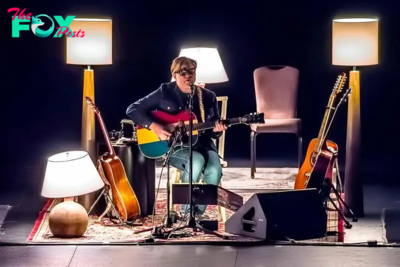
 Entertainment2h ago
Entertainment2h agoPHOTO GALLERY: Ryan Adams – OLG Stage at Fallsview On line casino – Niagara Falls, Ontario – November 24, 2024
-

 Entertainment5h ago
Entertainment5h agoDonna Kelce’s ‘Holiday Touchdown’ Cameo Includes Sweet Easter Egg to Son Travis: ‘Love You Mommy’
-
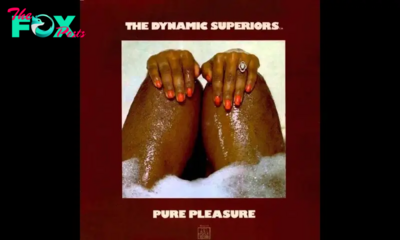
 Entertainment7h ago
Entertainment7h agoAmerica On CoffeeWe’re simply inviting you to take a timeout into the rhythmic ambiance of our breakfast, brunch and/or espresso alternatives. We’re comfortable everytime you cease by.Shoe Shoe Shine – The Dynamic Superiors
-

 Entertainment13h ago
Entertainment13h ago3 Completely different Kinds of TV Appearing Roles
-

 Entertainment13h ago
Entertainment13h agoAmerica On CoffeeWe’re simply inviting you to take a timeout into the rhythmic ambiance of our breakfast, brunch and/or espresso alternatives. We’re comfortable everytime you cease by.SYRUPING UP YOUR VERY OWN COFFEE FLAVORS
-

 Entertainment13h ago
Entertainment13h agoMeet Ava, the Golden Tiger Cub in Thailand Set to Be the Next Cute Viral Sensation
-
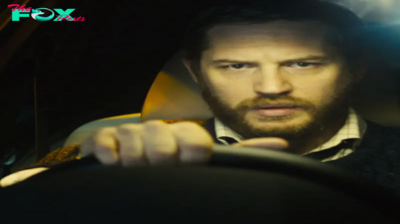
 Entertainment13h ago
Entertainment13h agoBest Tom Hardy Movies that Are Must-Watch
-
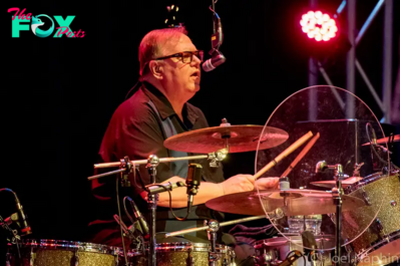
 Entertainment19h ago
Entertainment19h agoThe Smithereens with John Hampson – West Herr Riviera Theatre – North Tonawanda, NY – November 20, 2024
